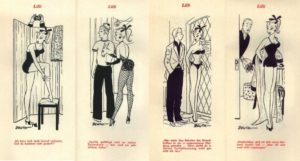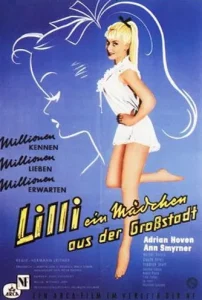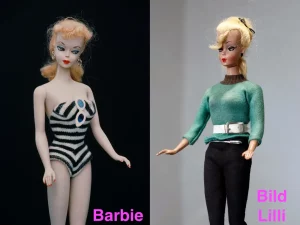The Barbie movie comes out this week and has been heavily hyped in the media (lots of pink!). Barbie has been a controversial figure, representing a stereotypical male-gaze version of women (blond, thin waist, oversized breasts). Reacting to criticism from feminists in the 1960’s and 1970’s, the toy company marketing the doll, Mattel, tried to counter the Barbie image with the release of black and Hispanic dolls. I commented on “Treetop Barbie” in 2019, which portrays the doll as a forest canopy researcher. That was better received than the 2014 book, Barbie: I can be a computer engineer, in which Barbie is shown having the idea for a video game, but has to have her male friends actually do the coding. Apparently, Greta Gerwig’s movie will feature many different versions of Barbie in various professions.
It may be that it has been difficult for Mattel to change the image of Barbie due to its origin, as a heavily sexualized doll, Lilli, who first appeared in a comic in the German tabloid Bild Zeitung in 1952 and was then released as a doll in 1955. In the comic strip Lilli, a secretary, appeared scantily clad and portrayed in provocative poses.
Known as “Bild-Lilli” in Germany, the doll was particularly popular in the 1950’s and 1960’s with men. According to a recent article in Business Insider, “Men got Lilli dolls as gag gifts at bachelor parties, put them on their car dashboard, dangled them from the rearview mirror, or gave them to girlfriends as suggestive keepsakes” (citing the Robin Gerber biography of Barbie’s creator, Ruth Handler). Handler had seen the Lilli doll on a trip to Europe and on her return to the US convinced Mattel to create Barbie. The striking similarities between the two dolls led to multiple lawsuits between Mattel and the German company producing Lilli, Greiner & Hausser. BTW, Lilli too spawned a movie, Lilli – ein Mädchen aus der Großstadt (Lilli, a Girl from the Big City) released in 1958.
In an interesting contrast, this week is also the start of another high-profile event featuring women, the World Cup; in this case highlighting athletic prowess rather than appearance
